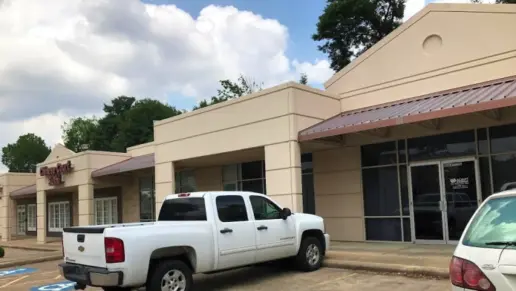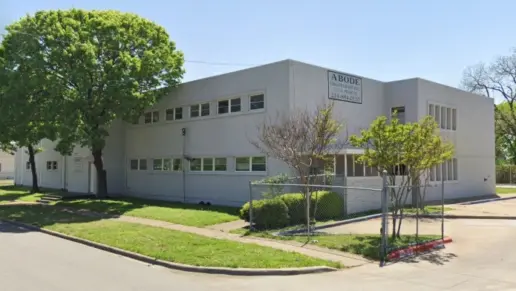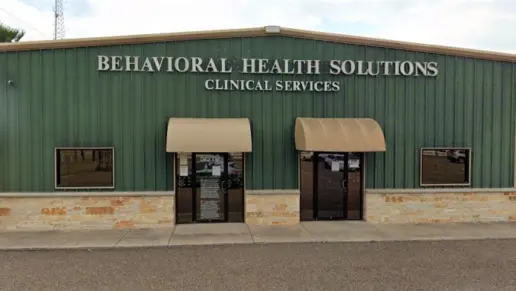About Melton Center
Melton Center at Land Manor is a drug and alcohol rehab facility in Beaumont, Texas. The program helps men and women overcome substance abuse and heal from the damage it has caused by utilizing a whole person approach. They are a residential facility with home like amenities. Melton Center serves clients referred by the Texas Department of Criminal Justice. The Melton Center is Substance Abuse Felony Punishment Facility (SAFPF).
Clients accepted into the residential program live at the facility while they receive treatment. Staff monitors the 65 bed unit around the clock to ensure safety and provide assistance when needed. Clients share living space and additional amenities with the community to foster growth and interpersonal relationships. The inpatient program is exclusively for women.
The whole person approach used by Melton Center helps clients heal physically, mentally, emotionally, and spiritually. The program focuses on individual and group therapy, addiction and behavioral education, counseling, peer support groups, life skills classes, and crisis and trauma services. Clients also have access to case management services, and staff will help them find employment and provide transportation to support meetings off campus.
Clients leave Melton Center armed with the skills needed to avoid relapse in the future. Before exiting the program, staff connects clients with community support services to help them stay on the road to recovery.
Both men and women can enroll in outpatient care, considered the next step from an inpatient program. It’s a better option for clients with a stable background whose symptoms don’t require close monitoring by staff. The Texas Department of Criminal Justice must still refer clients to enroll in the outpatient program.
The outpatient program is based on the same philosophy of care as the inpatient program. The difference is clients do not live on campus and instead visit it on a fixed schedule to participate in therapy and education. Clients have access to the same resources as those in inpatient, including aftercare.
Latest Reviews
Rehab Score
Other Forms of Payment
Self-pay involves paying for treatment out of your own pocket. You can use savings or credit, get a personal loan, or receive help from family and friends to fund your treatment. If you don't have insurance or your insurance plan doesn't cover a specific program, self-pay can help ensure you still get the care you need.
Addiction Treatments
Levels of Care
Treatments
The goal of treatment for alcoholism is abstinence. Those with poor social support, poor motivation, or psychiatric disorders tend to relapse within a few years of treatment. For these people, success is measured by longer periods of abstinence, reduced use of alcohol, better health, and improved social functioning. Recovery and Maintenance are usually based on 12 step programs and AA meetings.
During rehab in Texas, you'll deal with underlying issues that contribute to addiction. By addressing these challenges and learning healthy ways to cope with them, you'll develop strategies that help you live a drug-free lifestyle.
A combined mental health and substance abuse rehab has the staff and resources available to handle individuals with both mental health and substance abuse issues. It can be challenging to determine where a specific symptom stems from (a mental health issue or an issue related to substance abuse), so mental health and substance abuse professionals are helpful in detangling symptoms and keeping treatment on track.
Opioid rehabs specialize in supporting those recovering from opioid addiction. They treat those suffering from addiction to illegal opioids like heroin, as well as prescription drugs like oxycodone. These centers typically combine both physical as well as mental and emotional support to help stop addiction. Physical support often includes medical detox and subsequent medical support (including medication), and mental support includes in-depth therapy to address the underlying causes of addiction.
Programs



Clinical Services
Group therapy is any therapeutic work that happens in a group (not one-on-one). There are a number of different group therapy modalities, including support groups, experiential therapy, psycho-education, and more. Group therapy involves treatment as well as processing interaction between group members.
In individual therapy, a patient meets one-on-one with a trained psychologist or counselor. Therapy is a pivotal part of effective substance abuse treatment, as it often covers root causes of addiction, including challenges faced by the patient in their social, family, and work/school life.
Couples therapy helps couples learn to control emotions, trust each other, and communicate more effectively. It can be useful for short term intervention for a specific issue or for working on the relationship long term.
Research clearly demonstrates that recovery is far more successful and sustainable when loved ones like family members participate in rehab and substance abuse treatment. Genetic factors may be at play when it comes to drug and alcohol addiction, as well as mental health issues. Family dynamics often play a critical role in addiction triggers, and if properly educated, family members can be a strong source of support when it comes to rehabilitation.
Amenities
-
Private Setting
Accreditations

State Licenses are permits issued by government agencies that allow rehab organizations to conduct business legally within a certain geographical area. Typically, the kind of program a rehab facility offers, along with its physical location, determines which licenses are required to operate legally.
State License: Texas
Contact Information
1785 Washington Boulevard
Beaumont, TX 77705


